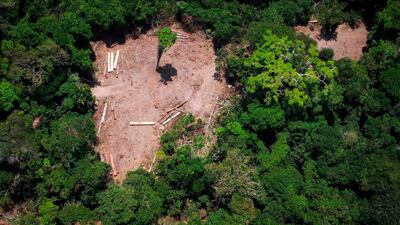Climate change is destroying our planet and at a much faster rate than once expected. The UN's Intergovernmental Panel on Climate Change recently released a report that warned of increased risks of food and water shortages due to climate change. If we do not act now, half a billion people living in areas prone to desertification will lose the arable lands they rely on for income and sustenance. This increases their risk of displacement and famine. In 2017 alone, the Norwegian Refugee Council's internal displacement monitoring centre estimated 18.8 million people had to flee their homes because of weather-related disasters.
This worrying trend affects us all. The month of July was the hottest ever recorded on Earth, with heatwaves sweeping across Europe and causing temperatures to climb to more than 40°C. We all have a part to play in saving the environment. One solution is to adopt eco-friendly habits such as using reusable bags instead of plastic ones and buying products with minimal packaging. We must also be mindful of our carbon footprint and consider what aspects of our everyday lives could be causing harm to our precious planet.
But individual actions must be propped up by better national policies for maximum efficiency. In Nigeria, lands that were once fertile are turning to desert. This has caused local herders and farmers to violently clash over the region's dwindling resources, claiming more than 10,000 lives in the past decade. The threat of desertification also looms over the Arabia Peninsula. In the UAE, plans are under way to preserve the country's peatlands and mangroves, which naturally absorb carbon dioxide, a greenhouse gas that contributes to global warming. In June, Abu Dhabi spearheaded the global conversation by hosting the UN's Climate Meeting, a precursor to next month's UN climate change conference in New York.
Such initiatives must be encouraged as climate change is not an isolated problem attributable to a single factor or country. In 2015, 195 countries, including the UAE, signed up to the Paris agreement and vowed to limit temperature increases worldwide to 1.5°C. Yet two years ago, the US withdrew from the accord, despite being the world’s second largest emitter of greenhouse gases and the IPCC has warned if we continue our current habits, global temperatures will rise to 3°C above pre-industrial levels by 2100. The UN’s latest report is a reminder that the clock is ticking on the greatest crisis of our time. Governments, international bodies and individuals have a responsibility to work together to fight climate change before it is too late.

